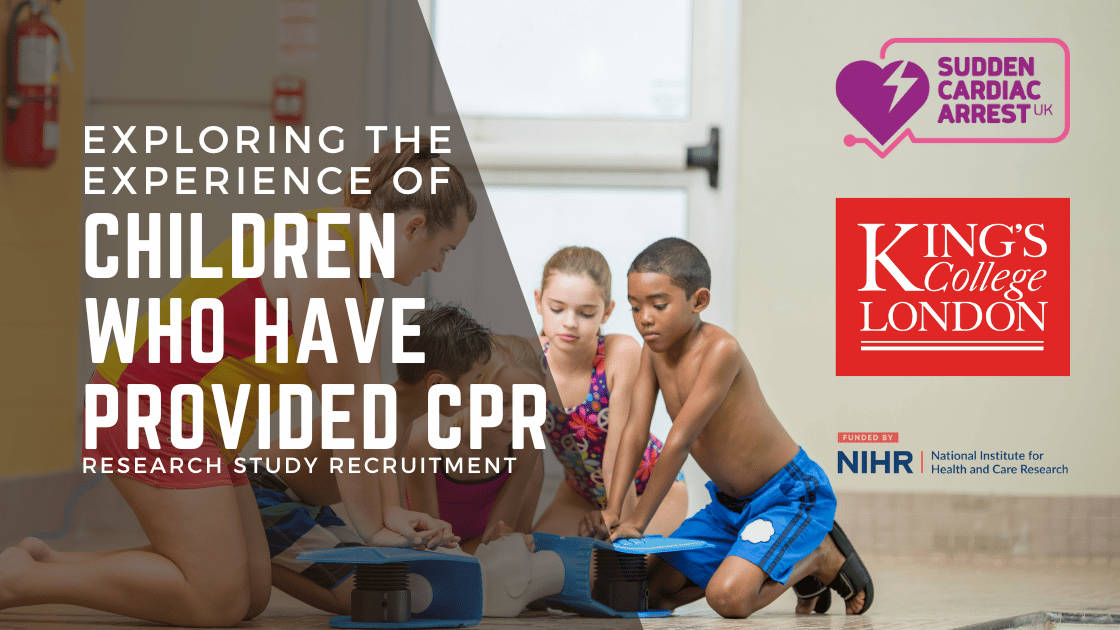Providing cardiopulmonary resuscitation (CPR) during a cardiac emergency can be an unsettling and even traumatic experience. As CPR training becomes more prevalent in schools, it’s crucial that we understand the potential psychological impact on children and teens. I am part of a new research study from King’s College London that aims to explore the experiences of young people aged 11-23 who have performed CPR on someone having a cardiac arrest.
We know from groups like Chain of Survival UK that administering CPR can be troubling even for adults.
So what is it like for youth?
By listening to their stories, the study hopes to find ways to better prepare and support young rescuers, both before and after a crisis event. This research has the potential to lead to improvements in CPR education and mental health resources for youth. Ultimately, we don’t want life-saving skills to come with a high emotional price tag
So, if you tried to help someone in this way when you were 11-18 years-old, or if your child did, then please read on to find out how you can help.
Research Study Recruitment

Are you a young person (11-23 years-old) who has previously tried to help someone having a cardiac arrest by providing cardiopulmonary resuscitation (CPR)?
If yes, you might be interested in taking part in a King’s College London research study.
A cardiac arrest is when someone’s heart stops beating and they collapse.
People who are there at the time can improve the person’s chance of survival, by calling an ambulance and starting CPR. They might also use a heart restarter machine (AED) to try to make the person’s heart beat effectively again
CPR is now being taught in many secondary schools. However, providing CPR in a real emergency situation can be difficult. It may also be hard to deal with thoughts and feelings afterwards. We don’t know what it is like for young people who try to help someone in this way.
We want to understand this better so that we can make sure CPR training properly prepares young people.
We also want to understand what kind of support young people find helpful after they have been involved in providing CPR.
Therefore, we want to talk to young people (11-23 years-old) who were involved in providing CPR when they were 11-18 years-old.
If this sounds like you, or your child, and you are interested in finding out more about the study, please visit our website – www.kcl.ac.uk/research/child-cpr-study – for more information.
If you think you might be interested in taking part, please contact our King’s College London researchers at [email protected].
We can explain more about the study and answer any questions you have before you decide whether or not you want to take part.
Thank you for your interest and best wishes.
The Child CPR Study research team.

After our first meet-up in February 2015, I realised I was not alone. It was the first time since my cardiac arrest the previous year that I had spoken face-to-face with someone who had experienced what I had. This was also true for my wife, who also happened to be my lifesaver. From that meet-up, the idea of SCA UK was born. Since then, we have achieved a considerable amount, primarily providing information, resources and support to others in a similar situation but also raising the profile of survivorship and the need for better post-discharge care. We are starting to get traction in this, and with the formation of the charity, I genuinely believe we have a bright future ahead and will make a significant difference in the lives of many who join our ranks.

